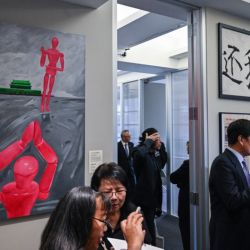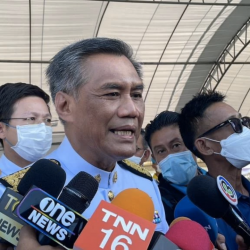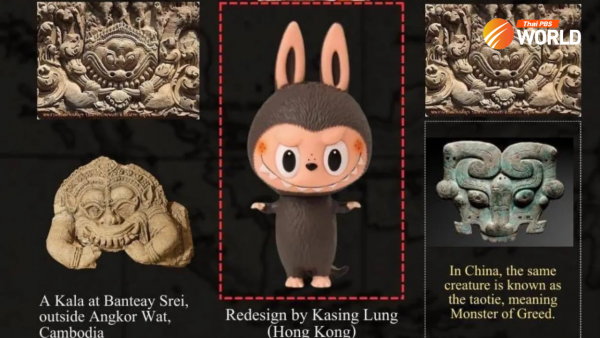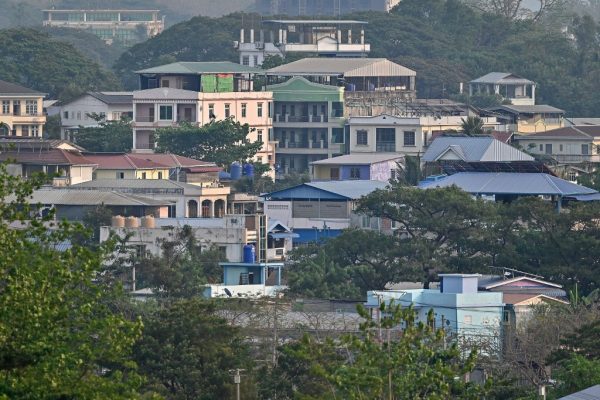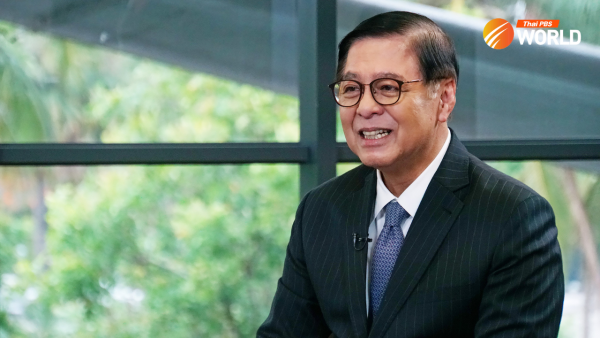Move Forward’s foreign policy raises concerns about US leverage in Thailand

Concerns over potential US influence on politics in Thailand arose after the Move Forward party announced its foreign policy, aiming to ‘’Revive, Rebalance, Recalibrate’’ in the hope of having more impact on international stage.
Among conspiracy theories and rumours, Thai local media quoted a social media post by a former Thai Ambassador to Buenos Aires, claiming that Move Forward’s first move is to reach an agreement with US to establish a military base in Thailand. The former ambassador is known to oppose many of the Move Forward’s policies.
The claim was denied immediately by the US Embassy in Thailand and Move Forward. The spokesperson of US Embassy, Nicole Fox, stressed that United States does not have a military base in Thailand and there is no discussion about establishing one.
‘’Rebalance’’ is not pragmatic
One of Move Forward’s ‘’3Rs’’, Rebalance, epitomises Pita’s determination to regain balance between US and China, in terms of economic linkage and security. It is idealistic and not pragmatic, according to Associate Professor Dr. Somjai Phagaphasvivat.
Dr. Somjai, an independent political and economic analyst, said that Thailand has been forcibly and voluntarily close to China since China established an organic link with the ASEAN and Thailand in terms of intertwined economic cooperation, including a bilateral free trade area, ASEAN+1, RCEP and Mekong Sub regional Cooperation.
The US, however, does not have constructive initiatives in this region. ‘’The US has no organic linkage in Southeast Asia. Last time US had organic linkage, but without Thailand, was the Trans-Pacific Partnership (TPP), from which President Trump withdrew. The US has nothing to do with this area,’’ he added.
In terms of security, Dr. Somjai explained that Thailand was the closest ally with US outside NATO at the beginning of this millennium. ‘’Ideally, ASEAN and Thailand should not have equal distance because equal distance means you lose everything, but you must balance the engagement with China, the US and the West.’’
To implement ‘’Rebalance’’ between US and China, the new government would face difficulties due to the social media trend in Thailand, which Dr. Somjai described as leaning towards China, due to geopolitics and “feelings”, while a lot of Thai people dislike the US.
“No matter how the public trend goes, the government should engage with both sides. Take the example of Vietnam, the dispute in the South China Sea has enraged Vietnam, but economically Vietnam still needs to engage with both US and China,’’ he added.
Negative image in Thailand
Social media plays a significant role in shaping the US image in Thailand, though not every online narrative is factual. Dr. Somjai stressed that erroneous depictions, including the “invasion” of Afghanistan and the proxy war against China inside ASEAN, harm the US image in Thailand.
‘’Thai people tend to believe these comments because of the western world’s history, which is one of colonisation, but it is not happening to Thailand. Thailand, however, has learned from the example of the southern hemisphere, including Latin America and Africa. That’s why the US and the European Union take changing opinions into account.’’
The majority of people tend to believe US image of neo-colonialism, said Dr. Somjai.
9 years of ‘Quiet diplomacy’
As a founding member of ASEAN, Thailand was one of few countries that took the lead in this region. ‘’Thailand played a pivotal role in establishing ASEAN through the Bangkok Declaration in 1967 and in setting up AFTA, the ASEAN Free Trade Agreement, under former Prime Minister Khun Anand Panyarachun, and the ASEAN Regional Forum under Khun Surin Pitsuwan,’’ adding that Thailand’s role has been decreasing in the international arena and now has no influence, in comparison to Southeast Asia’s neighbours, including Indonesia, which has gained leverage on the international stage in recent years. ‘’Thailand keeps its profile really low. We are democratically silent and internationally silent,’’ Dr. Somjai added.
US leverage if with F35
The Thai Airforce has said that the United States has already refused to sell F-35 stealth fighter jets to Thailand, citing training and technical requirements. Dr. Somjai commented that US could have more leverage if it sold the F35s to Thailand, since the sale needs justification in terms of security rather than in economic terms.
‘’Do we believe that Thailand is a close ally with the United States? This offering could be leverage for the United States, since the US is now trying a de-risking policy. Sharing technology is dangerous for the US, so this is why the US holds its position. Thailand is not considered a friend, but not an enemy either. This deal is now pending, because the US government wants to see the attitude of the new government.’’

